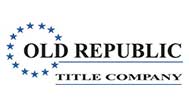FHA loans are some of the most popular mortgage types available in the United States. The acronym FHA stands for Federal Housing Administration, a part of the US Department of Housing and Urban Development.
Since 1934, the FHA insures mortgages offered by partner banks to facilitate the home purchasing process for first-time buyers. Before applying for an FHA loan, it is crucial to know all the requirements to achieve it.
In this article, you will find out an updated guide with the FHA loan requirements in Florida.
What is an FHA Loan? – An Overview
Since its creation in 1934, the FHA has insured more than 46 million mortgages. Indeed, FHA loans contributed to facilitating homeownership. However, obtaining an FHA loan has specific requirements, including down payments, credit score, DTI ratio, inspections, insurance, etc.
FHA loans do not have the purpose of helping real estate investors, but people who want to live in the home they are buying with the benefit.
Hence, the FHA requires that the buyer uses the home bought with the obtained loan as their primary residency.
Credit Score and Down Payment
Regardless of the type of mortgage, the credit score is always a crucial factor in eligibility. Accordingly, obtaining an FHA loan requires a minimum credit score of 500.
When applying for an FHA loan, your credit score will determine the cost of the down payment. While a conventional mortgage would require a 620 score with a 20% down payment, the threshold is much lower in an FHA loan.
Hence, if you have a credit score between 500 and 579, you are required a 10% down payment.
If your credit score is 580 or higher, you are required only a 3.5% down payment. For instance, if you borrow $100,000 to buy a home in Florida, you will only need to come up with $3,500 as the down payment.
Debt-to-Income (DTI) Ratio
The debt-to-income ratio (DTI) compares how much an individual owes each month to how much they earn. In essence, it is the percentage of someone’s gross monthly income (before taxes) that they use to pay for rent, mortgage, credit cards, or any other debt.
When someone is applying to obtain a mortgage, a lender will use the DTI ratio to determine their borrowing risk level. Typically, a lender will look at two DTI ratios – total debt and mortgage debt.
Ultimately, a lender needs to ensure that you have enough monthly income to pay all your debts plus mortgage payments.
In this sense, an FHA loan is much better when compared to other types of home loans. The FHA sets the limit at 43/31.
The first number refers to the applicant’s total monthly debt. The applicant’s monthly expenses cannot exceed 43% of their monthly income. The second number means that the mortgage cannot represent more than 31% of the applicant’s monthly income.
Private Mortgage Insurance
When you obtain an FHA loan, you must have mortgage insurance and pay an upfront mortgage insurance premium (UFMIP), which is 1.75% of the loan amount paid at closing.
On the other hand, the monthly mortgage insurance premium (MIP) varies between 0.45 and 1.05% of the loan amount. This way, the percentage varies according to the down payment and the mortgage’s term.
For instance, if you put down less than 10%, you will have to pay the MIP up until you end the FHA loan. However, if you put down 10% or more, you will have to pay the MIP for 11 years.
Inspections and Appraisals
As established by the US Department of Housing and Urban Development (HUD), all homes purchased with FHA loans must meet minimum property requirements. The process requires an inspection report to prove a property is safe, sound, and secure.
It is possible to obtain the complete list of requirements in the HUD’s Single-Family Policy Handbook. Among the fundamental factors, a property must have:
- No roof leaks
- A roof with at least two years of life remaining
- No chipping or peeling paint
- Functioning utilities and appliances
- Water drainage system away from the home
- Solid foundation (structurally)
- Properly functioning windows
- Adequate water pressure
- No active infestations
- No environmental hazards
In this sense, the appraisal value must either meet or exceed the amount of the FHA loan. If your appraisal is under the loan value, there are possible manners to dispute a home appraisal in Florida.
FHA Loan Requirements Florida 2021 – We Can Help You
At Marina Title, we have legal advisors that will help you meet all FHA loan requirements. Waste no time with uncertainty. Call us today at (855) 513-5880 or send us an email at Info@MarinaTitle.com to schedule a consultation.















